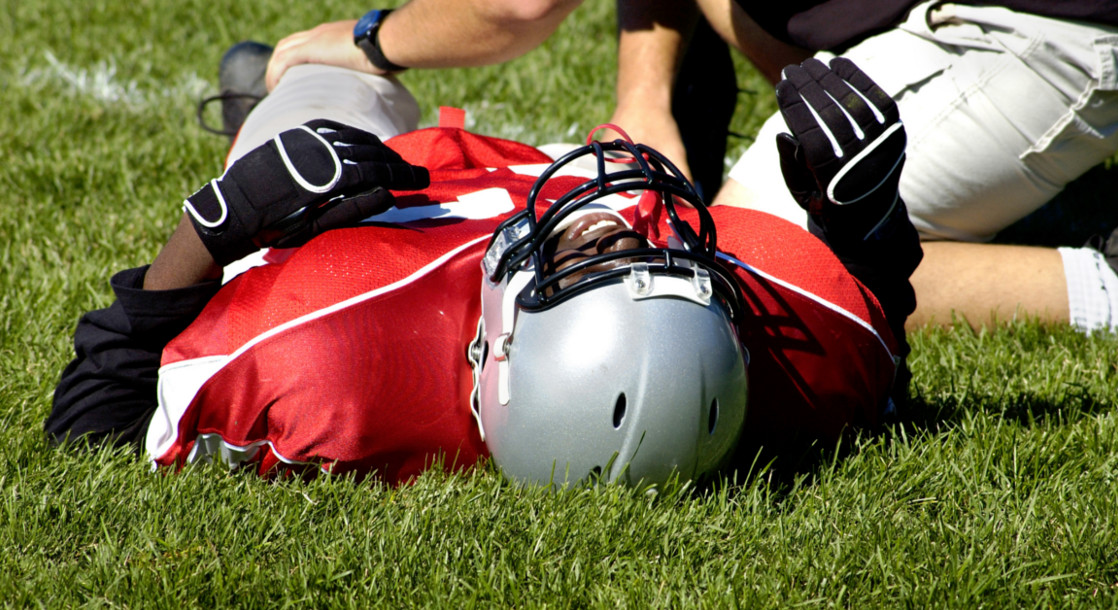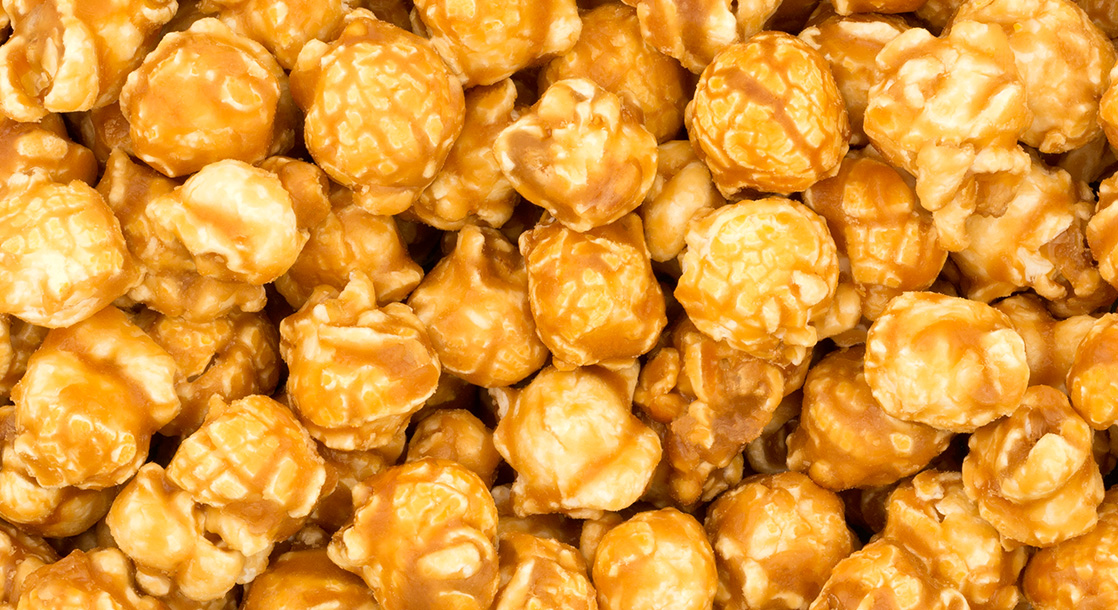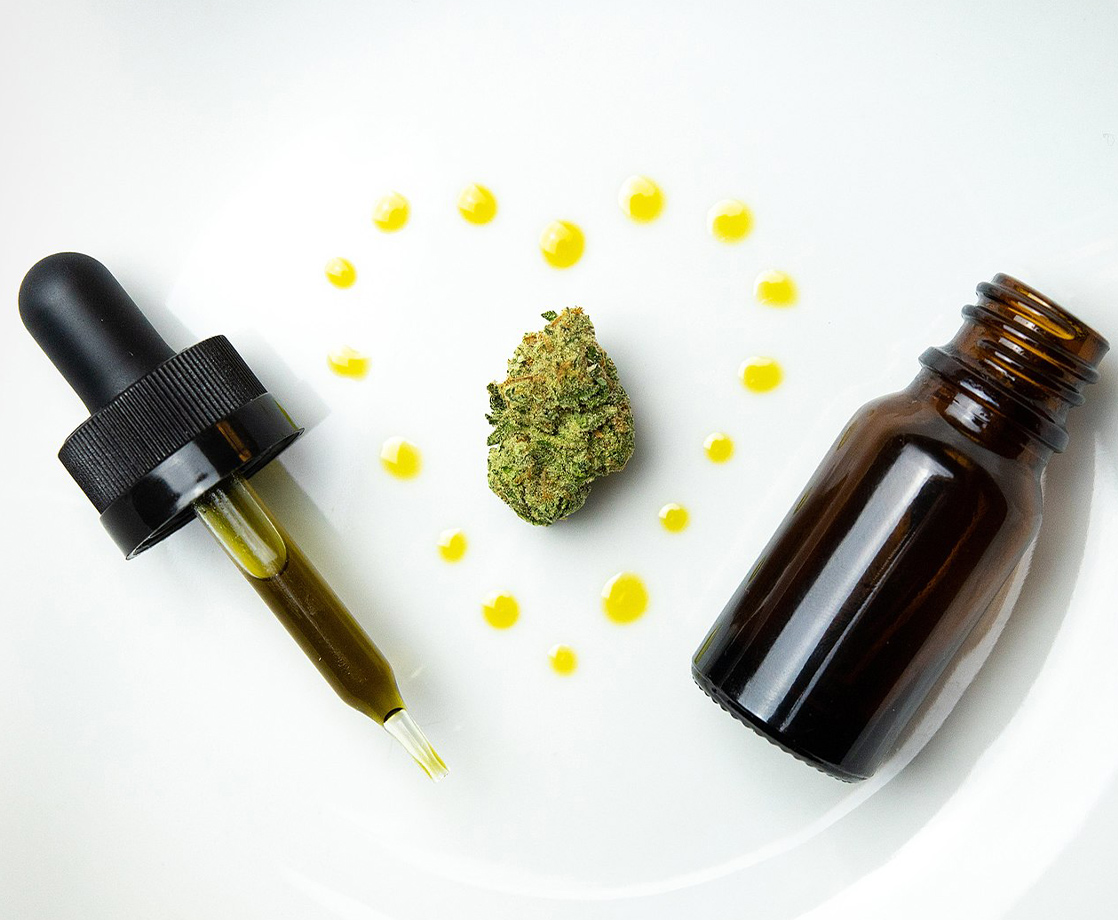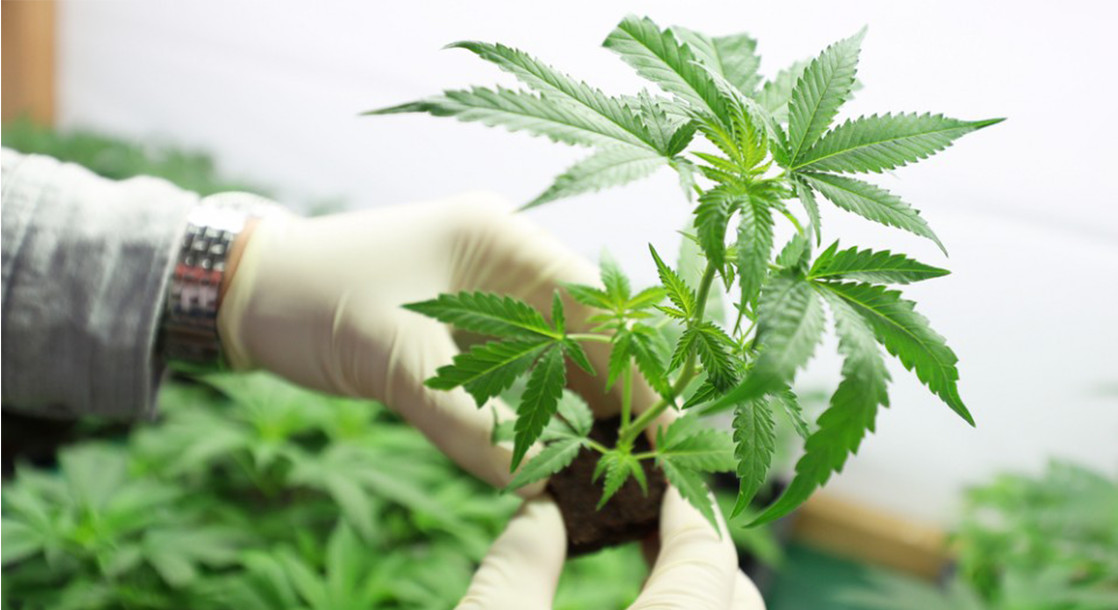Photo via Serega
This Sunday, hundreds of millions of people around the world will watch the Philadelphia Eagles and New England Patriots square off in the NFL’s 52nd Super Bowl. But as millions of Philadelphians prepare to finish the NFL season by climbing street lights and sparking bonfires downtown, thousands of active and retired professional football players and the doctors that treat them are only beginning to uncover the long-term realities of the hyperviolent sport.
Subjected to repeated head trauma from Pop Warner youth football until the day they retire, and steered towards dangerous prescription painkillers anytime the injuries become too much to bear, professional football players have felt the repercussions of both neurological damage and opioid addiction for decades. While initial trials have shown cannabis’ near-miraculous ability to reverse the effects of concussions in addition to helping users kick opioid habits, a lack of federally approved research and the NFL’s conservative leadership have continually pushed the league’s dangers out of the public eye.
In an effort to bring the NFL’s overlooked medical issues to light and craft a new path forward, the American Medical Marijuana Physicians Association (AMMPA) will host a conference in Miami this coming May, where doctors, athletes and cannabis professionals will come together to examine ways in which medical cannabis could be used to help athletes not only throughout their playing days, but well into retirement.
To find out more about the upcoming conference, and learn about the challenges facing both physicians and football players in applying cannabis as a medical treatment, MERRY JANE spoke by phone with AMMPA co-founder Dr. Jason Pirozzolo.

Dr. Jason Pirozzolo; photo via Facebook
This interview has been edited for length and clarity.
MERRY JANE: What is the AMMPA, and how did the football-focused conference come about?
Dr. Jason Pirozzolo: AMMPA is the largest physician-based medical cannabis organization in the world, and part of our mission is to raise awareness of the potential benefits of medical cannabis — we’re here to support patients and doctors who utilize this alternative treatment. Our goal with this conference is to create a platform for high level scientific discussion by bringing together the topics relating to NFL athletes and medical cannabis, effectively merging the two worlds of traditional western medicine and alternative cannabinoid medicine.
The conference's keynote is Dr. Bennet Omalu, the man who discovered CTE and was portrayed by Will Smith in the movie Concussion. First, what is CTE? And how can medical cannabis help?
CTE, or chronic traumatic encephalopathy, is a progressive degenerative disease of the brain found in people with a history of repetitive brain trauma, which just so happens to occur with football players. As for medical cannabis, research shows that CBD possesses an anti-inflammatory and a neural-protective property, and in recent studies with animals, CBD has actually been able to reverse the effects of CTE.
New England Patriots tight end Rob Gronkowski suffered a concussion last weekend on live television in front of millions of people — in your opinion, should he be able to play in the Super Bowl?
It depends if he successfully progresses through the concussion protocol and remains symptom free, but if he continues to escalate his activity without issue, he absolutely could play on Sunday. And as a doctor of sports medicine, that’s what we’re trained to do, but that’s also where we’re wrapped in an enigma. Long-term, there’s no way to predict, see, or even quantify CTE, so when you factor that in, it certainly complicates the decision process. But in the short term, I don’t believe the team physicians will be factoring CTE into their decision.
You mentioned that in animal tests, CBD has shown the ability to reverse the effects of CTE, but despite statements from both the NFL front office and players union calling for increased cannabis research, neither party has acted. Do you think the powers that be in the NFL even know the difference between CBD and THC?
From a medical standpoint, it’s highly unlikely that they know the difference. But from a legal standpoint, it’s still a very complicated situation because they’re both considered Schedule I drugs. So the more advocacy that’s out there for medical cannabis, in all facets as long as it’s safe and done appropriately, I think that’s going to help improve the conversation and move the research along.
In addition to CTE, the most prevalent medical issue in the NFL is long-term injuries and subsequently, the overuse of prescription painkillers. Can you speak about the ways in which America’s larger problem with opioid addiction affects professional football players?
We tend to see a lot of chronic opioid use in professional athletes because their bodies are subject to such rigorous and severe injury. One of the benefits of medical cannabis is the potential to transition them off of opioids and over to medical cannabis, which has proven to be much, much safer. At our conference in May, one of the main focuses will be increasing that discussion about how doctors can help their patients make that transition and set out a plan that physicians can start to follow.
Dr. Orlando Florete, President of AMMPA; photo courtesy AMMPA
At this point, it seems like the NFL is still imagining players lighting up joints on the sideline and playing high. Can you talk about what medical cannabis treatments should actually look like for athletes in practice?
In my opinion, athletes should only use medical cannabis, whether it be CBD oils, topicals, or other products, under the treatment of a trained and experienced physician who can monitor [its] effectiveness, and provide a close longitudinal documentation and analysis of the athlete’s health trends. Moreover, as the topic emerges more in the NFL, the league and the Players’ Association should absolutely work closely with those trained physicians to make sure that players are following the necessary protocols that are laid out in any treatment exemption that may be propagated over the next few years.
I’ve been indirectly involved with athletes that have had to make that transition from opioids to medical cannabis, and it is very much individualized. Every athlete is going to experience different side effects from opioid withdrawal, and require different doses and modes of medical cannabis.
Why do you think it’s taking the NFL so long to even consider those possible changes in league policy?
I can see where they’re coming from, simply because of the confusion that still exists not only in football, but society as a whole, with the discrepancies in federal laws vs. state laws, and a general lack of research. What we really need is to push Congress to clarify that ambiguity, and from what I’ve heard from friends at the government level, challenges to those research barriers are coming soon, hopefully creating more safe harbors for clinical cannabis studies, which is extremely exciting. Cannabis is an entirely untapped potential medication across the board.
Ex-NFL player Eugene Monroe has called for the use of CBD in youth football as young as Pop Warner (4th and 5th graders) — do you think that could help diminish the long-term neurological impacts of the sport?
As with most medical cannabis research, the evidence is lacking at this point. First, we need clarity at a legal level that will allow that research to take place. And once we can transition that science from animal studies and small anecdotal case studies to larger double-blinded, placebo-controlled studies, then eventually pediatric patients [can enter] into those studies. Once we have that data and are able to see positive results, then I think we’ll see a transition in the way we think about neuroprotective medicine, at all age ranges.
Do you think there are similar health concerns in other sports that we as a society haven’t yet acknowledged?
For sure, but it all comes down to the epidemiology. It’s all about the numbers. Because the NFL is so popular, with tens of billions of dollars wrapped up in the league, and hundreds of thousands if not millions of people — from youth to adult — playing football every day, I believe that’s why the NFL has become a hot-button topic. In wrestling, boxing, MMA, skateboarding, and more sports, the potential is absolutely still there for both opioid addiction and neurological issues, but because of the sheer numbers and scope of the issue, that’s why the focus is on football.
If nothing is changed in terms of player health and well-being going forward, how long do you think the NFL and America’s obsession with football can last?
If it continues along this course, there is a very plausible expectation that the game will have to change; it’s that simple. That’s why cannabis could act as such a reasonable potential alternative that, if introduced properly, could help to sustain the game as we know it. But first we need the ability to even research it, and then hopefully we can go from there.












